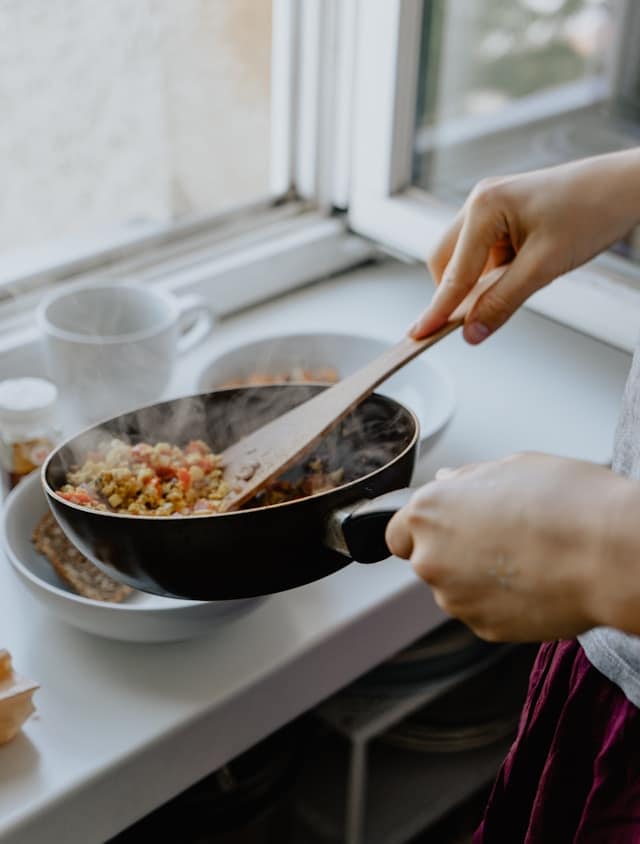How Can Cooking at Home Improve Family Nutrition and Bonding?

In the hustle and bustle of modern life, the family kitchen tends to be under-utilized. Yet it’s a space that offers significant benefits to your family’s health and relationships. Cooking meals at home not only helps ensure a healthier diet but also offers a golden opportunity for family bonding. Let’s dive in and explore how cooking at home can positively impact your family’s nutrition and bonding.
The Health Benefits of Home-Cooked Meals
The health benefits of eating home-cooked meals are well-documented. A study published in the Public Health Nutrition journal found that people who regularly eat home-cooked meals consume fewer calories, less sugar, and more fiber than those who eat out often. Home-cooked meals also often contain fewer processed foods, which are known to be linked to numerous health issues.
This might interest you : What Are the Benefits of Reflexology in Managing Chronic Headaches?
When you cook at home, you have control over what goes into your food. You can choose fresh, high-quality ingredients and avoid artificial additives. You can also alter recipes to suit your family’s dietary needs, reducing salt or sugar, for instance, or adding more vegetables for extra fiber. In essence, the kitchen becomes your family’s personal health laboratory.
Several scholarly articles on Pubmed and PMC also suggest that families that eat home-cooked meals have a lower risk of obesity and healthier eating habits. This is crucial, especially for children, as it helps establish healthy eating habits that can last a lifetime.
In parallel : How Can Companion Robots Alleviate Feelings of Isolation in the Elderly with Mobility Issues?
Home Cooking As a Learning Opportunity
Cooking at home is an excellent educational opportunity for the entire family. For children, it provides a hands-on experience with food, helping them understand where it comes from and how it’s prepared. This can lead to a deeper appreciation of food and a greater willingness to try new things.
This process is also an ideal time to teach children about nutrition and the importance of eating a balanced diet. Using the USDA’s MyPlate model, you can illustrate the importance of having fruits, vegetables, grains, proteins, and dairy in your diet.
Moreover, cooking is a vital life skill that will serve children well into adulthood. It can increase their self-confidence and independence, as well as their knowledge about food safety and basic maths through measuring and calculating portions.
The Role of Home Cooking in Strengthening Family Bonds
Apart from being a source of nourishing food, the kitchen can also be a vibrant hub of family activity. Cooking together is a simple and effective way to strengthen family bonds. A study published on PMC found that families that cook and eat together are likely to have stronger relationships.
Cooking together provides a shared goal and fosters cooperation, communication, and teamwork. It’s a time when the distractions of devices can be put aside, and family members can engage with each other in a meaningful way.
For children, these experiences can foster a sense of belonging and security. They’re able to contribute in a meaningful way, learn from their parents, and establish cherished memories.
Home Cooking: A Route to Mindful Eating
Cooking at home encourages mindful eating, a practice that involves paying attention to what you eat and how it makes you feel. It can aid in weight management and promote healthier eating habits.
When you cook your meal, it makes you more conscious of what you’re eating. You’re less likely to overeat because you’re aware of each ingredient that goes into your food. You also tend to appreciate the food more, savoring each bite, and eating slowly, which can prevent overeating.
Moreover, home cooking allows for meal customization. If you’re trying to eat healthier, you can substitute ingredients, reduce portion sizes, or try new recipes that align with your health goals.
Saving Time and Money with Home-Cooked Meals
While it may seem like cooking at home is time-consuming, it can actually save you time in the long run. Planning meals for the week, doing one big grocery shop, and prepping ingredients in advance can make cooking meals quicker and less stressful.
Furthermore, home cooking is often cheaper than eating out or ordering takeout. A study published in the Journal of the Academy of Nutrition and Dietetics found that meals cooked at home are cheaper per serving than both fast food and full-service restaurant meals.
All in all, the time you spend in the kitchen isn’t just time spent cooking. It’s time invested in your family’s health, in educating your children, in strengthening your family bonds, and in promoting mindful eating habits. So why not dust off that apron, gather your family, and start reaping the multitude of benefits that cooking at home can bring?
The Transformational Power of Home Cooking on Mental Health
The practice of home cooking offers more than just physical health benefits, it also contributes positively to our mental health. Multiple studies published on Google Scholar and PubMed reveal that the act of cooking can be therapeutic, reducing stress, enhancing creativity, and boosting self-esteem.
Cooking gives you the chance to focus on a task, providing a productive distraction from worries or negative thoughts. The process of chopping vegetables, mixing ingredients, and watching your creation come to life can be calming and meditative, stimulating mindfulness.
Moreover, the feeling of accomplishment derived from creating a delicious meal can boost self-esteem and confidence. Notably, a research study available in the PMC Free archive exhibits that cooking classes can significantly improve mental health outcomes, particularly for individuals dealing with depression or anxiety.
For children, being involved in meal preparation can build self-confidence and foster a sense of achievement. It can also help develop patience and improve focus, which is beneficial for their academic performance and overall quality of life. Learning to cook can help them feel capable and competent, key components of a healthy self-image.
Additionally, the satisfaction of eating home-cooked meals can lead to positive associations with food. This healthy relationship with food can contribute to improved body image, which in turns leads to better mental health.
The Sociocultural Impact of Home-Cooked Family Meals
The tradition of preparing and sharing meals is deeply rooted in many cultures around the world and plays a significant role in family life. Cooking and eating together as a family fosters a sense of togetherness, creating a strong familial bond and enriching the quality of life for all family members.
From diverse Pubmed Google articles, we learn that home cooking provides a platform for cultural transmission and preservation. It allows for the passing down of family recipes and food preparation methods, keeping traditions alive and fostering a sense of continuity and identity.
Furthermore, the act of sharing a meal can serve as a catalyst for conversation and connection. Families can discuss their day, share experiences, and solve problems together, leading to improved psychosocial outcomes.
For children, these regular interactions can lead to improved social skills, better academic performance, and a lower likelihood of engaging in risky behaviors like substance abuse. It is also an excellent opportunity for parents to model good table manners, healthy eating habits, and a positive attitude toward food.
The inclusivity found in communal cooking and eating can also create a sense of belonging, heightening feelings of security and love within the family. Hence, the family kitchen is not just a place for food preparation, but a heartwarming space for nurturing relationships and creating lasting memories.
Conclusion
From the aforementioned, it is clear that home cooking boasts a myriad of benefits, extending beyond mere sustenance. It stands as a powerful tool for enhancing physical and mental health, promoting healthy eating habits, improving quality of life, and fostering familial bonds.
The journey into home cooking may seem daunting, especially amidst the convenience of fast food and takeout meals. However, armed with the right knowledge and a bit of practice, it becomes not only manageable but enjoyable. Remember, the kitchen isn’t just a room. It’s a classroom, a lab, a therapist’s office, and most importantly, a binding thread for family.
While trying to find articles on how to start, remember to also seek out cooking classes for you and your family members. Use these opportunities to connect, learn, and create something delicious together. As research consistently shows, the benefits of cooking at home are worth the effort. So, let’s reclaim our kitchens and embrace the enriching experience of home cooking.
